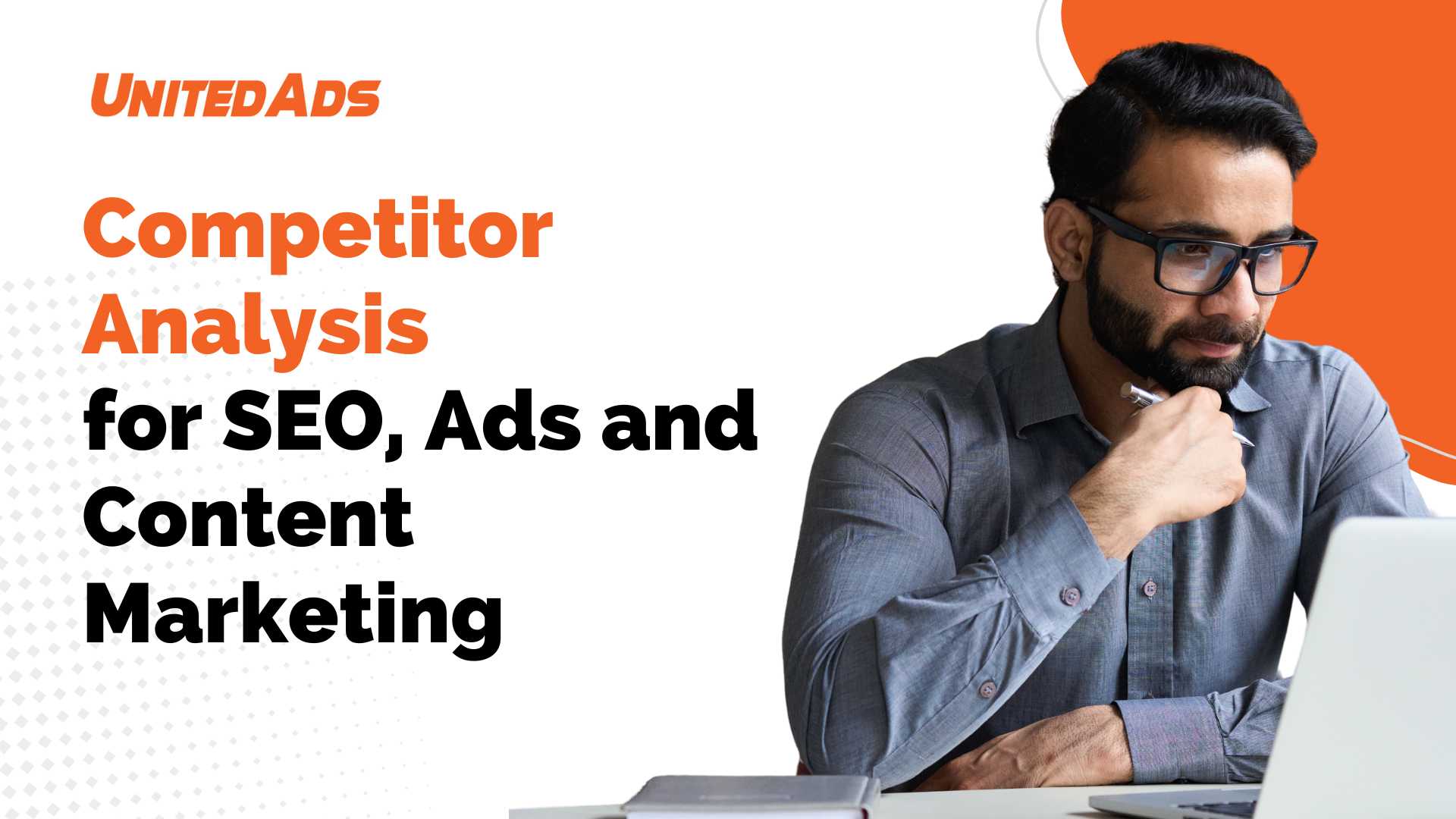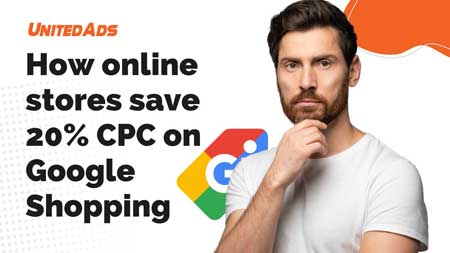Google Ads are much more than simple ads. They are a treasure chest of opportunities to increase the visibility of your events and reach your target audience.
Google Ads: Why are they indispensable for marketing your events?
Increased visibility: Google Ads and your event superpowers
Google Ads are like a spotlight that shines a spotlight on your event and reaches a larger audience.
An event can be organized no matter how well – if no one knows about it, success fails to materialize. This is where Google Ads come in to give you event superpowers and take your visibility to a new level. Google Ads are designed to appear exactly when potential attendees search for keywords that match your event.
This will put your events directly in the sights of those who may have the highest interest in them. In addition, Google’s global reach allows you to promote your event beyond regional and national borders.
But it’s not just about pure visibility. Through targeted and personalized ads, you can create a strong connection with your audience and evoke emotions that inspire action. This is how interested parties become real participants.
So use the power of Google Ads to put your events in the spotlight and reach your target audience – quickly, effectively and exactly when it matters.
Hit the bull’s eye on targets: Personalization with Google Ads
With Google Ads’ sophisticated targeting options, you can reach exactly the people who might be interested in your event.
By using targeted keywords, demographics, and location information, you can ensure that your ads are shown to the exact people who are likely to be interested in your event.
But personalization goes even further. With Google Ads, you can create and test different ad versions to see which one resonates best with your target audience. This could be a different call-to-action, ad description, or image. This testing process allows you to optimize your ads more and more and match them even better to your target audience.
This means that with Google Ads you not only reach more people, but also the right people. You’ll hit your target by creating relevant, engaging, and personalized ads that encourage your potential subscribers to click “Sign Up Now.” This makes Google Ads a powerful tool in your event marketing arsenal.
Efficiency under the magnifying glass: performance measurement with Google Ads
Another key benefit of Google Ads is the ability to accurately measure the performance of your ads. Wondering how many people have seen your ad? Or how many clicked on it and landed on your event page? With Google Ads, you have the answers to these questions literally at your fingertips.
Google Ads provides you with a variety of metrics to evaluate the success of your campaign. These include impressions (how many times your ad was seen), clicks (how many times your ad was clicked), conversions (how many times a click led to a desired action, such as a registration for your event), and cost per conversion (how much you paid on average for a successful conversion).
By accurately analyzing these metrics, you can continuously optimize your campaigns. You’ll recognize which ads work well and which not so much, where improvements are needed, and how to best allocate your budget to achieve maximum impact. In short, Google Ads lets you take a close look at the effectiveness of your marketing efforts and constantly improve your event promotion. In doing so, it will help you increase the ROI of your events and make even better use of your event superpowers.
Your personal advertising workshop: How to create effective Google Ads
Key to success: keyword research for your Google Ads
Keyword research is the first and perhaps most important step in creating a Google Ads campaign. The right keywords can make the difference between your ad being seen by your target audience or being lost in the digital noise.
But what makes a good keyword? First, it should be relevant to your event. For example, if you are hosting a rock concert, relevant keywords could be “rock concert”, “live music” or the name of the band. In addition, you should also consider what your target audience might be looking for. Maybe they are looking for “events in [Ihrer Stadt]” or “what can I do this weekend”.
Google Ads offers keyword research tools that can help you find the most appropriate keywords for your event. With these tools you can also find out how often a certain keyword is searched for and how high the competition for this keyword is.
By choosing the right keywords for your Google Ads, you ensure that your ads are seen by the right people at the right time. This makes keyword research the key to the success of your Google Ads campaign. Use this key wisely to take full advantage of your event superpowers and make your events a success.
The bait makes the difference: creating appealing ads
Creating engaging ads is an art in itself and plays a crucial role in the effectiveness of your Google Ads campaign. It’s not enough to simply be visible – your ad must also be interesting enough to grab the audience’s attention and encourage them to click.
The heart of every ad is the text. This should be clear and concise and let the user immediately understand what you are offering. Good ad copy connects with the target audience and evokes emotions that inspire action. It is important to highlight your USPs (unique selling points): What makes your event special? What makes it different from other events?
Another important element is the call-to-action (CTA). This call to action should be clear and unambiguous and encourage the user to click on the ad. “Register now,” “Secure tickets,” or “Learn more” are examples of effective CTAs.
Last but not least, you should also consider the visual design of your ad. An appealing image or eye-catching background can help draw the user’s attention to your ad.
Remember: the bait makes the difference. With an appealing ad text, a strong CTA and a visually appealing design, your Google Ads will not only be seen, but also clicked. This is how you attract your audience and lead them on the way to your event.
Your digital stage: landing page optimization
The ad is just the first leg of your audience’s journey to your event. After clicking on the ad, visitors land on your landing page – and this is where the good impression your ad made should continue.
Optimizing your landing page is therefore an indispensable part of a successful Google Ads campaign. A well-designed landing page keeps visitors on your website and guides them along the path to register for your event.
Key features of an optimized landing page include a clear and engaging headline, an appealing design, a compelling call-to-action, and relevant content that adds value to the visitor. It is also important that your landing page is well-structured and user-friendly to provide visitors with a pleasant experience.
But that’s not all. The landing page must also be technically optimized. This means that it should load quickly, be optimized for mobile devices, and have clear tracking mechanisms to measure and improve performance.
Remember, your landing page is your digital stage. It provides the perfect setting to showcase your event and encourage visitors to register. With an optimized landing page, you’ll convert prospects into attendees and ensure a sold-out event.
Typical mistakes in Google Ads campaigns for events and functions
Google Ads can be an effective tool for promoting your events and functions. However, as with any tool, there may be errors that can affect your results. Here are some of the most common mistakes you should avoid:
- Insufficient keyword research: An effective Google Ads campaign starts with thorough keyword research. Missing or poorly chosen keywords can result in your ads not being displayed to the right users. Make sure your keywords are relevant and specific to your event.
- No strong call-to-action (CTA): A clear and compelling CTA is critical to getting users to click on your ads. A weak or missing CTA can cause users to ignore your ad.
- Poorly designed landing pages: Your landing page is the first thing users see after they click on your ad. A cluttered or confusing landing page can deter users and cause them to leave without registering for your event.
- Unmeasurable goals: One of the strengths of Google Ads is the ability to measure and analyze the performance of your ads. If you don’t set clear and measurable goals for your campaign, you won’t be able to assess whether your ads are effective or if improvements are needed.
- Lack of budget management: Google Ads can be expensive, especially if you don’t pay close attention to how your budget is spent. Effective budget planning and control is critical to ensure your costs don’t spiral out of control.
- Lack of customization and optimization: Google Ads requires continuous customization and optimization to achieve the best results. If you create your ads once and then forget about them, you may miss opportunities to improve.
Requirements for event ticket sellers
Companies that sell event tickets are allowed to advertise with Google Ads if they meet certain requirements. Therefore, they must first submit a review request to Google. For a successful audit, the landing pages or apps through which event tickets are sold must meet certain objective criteria based on the respective clearly evident business model. Google does not review any details of the offerings on such websites, nor does it perform any legal analysis. The above application must be submitted in advance regardless of ad format and asset type. Please use this form for this purpose.
For advertising with Google Ads, landing pages may need to meet certain requirements. Additional ad-level requirements apply to some companies.
Here is an explanation of the terms used in the following text:
- Business Model Definition: You must specify your business model to determine if you meet the requirements to be eligible for ad placement.
- Target requirements for Google Ads eligibility: These requirements must be met depending on the business model.
- Ad-level requirements: These ad requirements must be met depending on the business model.
Conclusion
Google Ads are a powerful tool in the world of digital marketing, including when it comes to promoting events and reaching a wider audience. From finding the right keywords to creating appealing ads to designing user-friendly landing pages, there are many aspects that need to be considered to run a successful Google Ads campaign.
Still, as with any other marketing strategy, it’s important to know and avoid potential mistakes. Inadequate keyword research, missing or weak calls-to-action, poorly designed landing pages, lack of budget management, and lack of customization and optimization are some of the most common pitfalls you should avoid at all costs.
Remember that a successful Google Ads campaign requires constant monitoring and adjustment. With proper planning, regular optimization, and a keen eye for detail, you can fully realize the potential of Google Ads and effectively promote your events.
Now, take the leap and use the power of Google Ads to put your events in the spotlight. Good luck!






